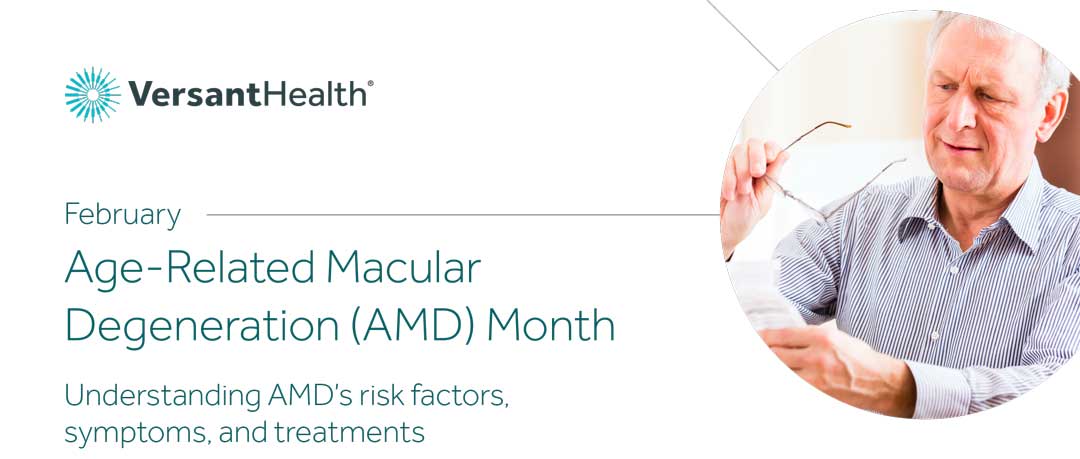
February
Age-Related Macular Degeneration (AMD) Month
Understanding AMD’s risk factors, symptoms, and treatments
What is AMD?
Age-related macular degeneration (AMD) is deterioration of the macula, which is the small central area of the retina of the eye that is responsible for sharp, central vision.
AMD has three stages:
- Early—Diagnosed by the presence of medium- sized, yellow deposits (known as drusen) beneath the retina that are about the width of an average human hair.
- Intermediate—Those at this stage will usually have large drusen, pigment changes in the retina, or both.
- Late—In addition to drusen, vision loss from damage to the macula will also become noticeable in this stage.
What are the risk factors of AMD?
The biggest risk factor for macular degeneration is age. Your risk increases as you age, and the disease is most likely to occur in those 55 and older. You are also more likely to develop macular degeneration if you are overweight, smoke cigarettes, are Caucasian, are female, have a family history of macular degeneration and/or eat a diet high in saturated fat.
Sources: All About Vision, AAO, AOA, Glaucoma.org, NIH.gov
Learn more at versanthealth.com/blog
What are the symptoms of AMD?
Macular degeneration usually results in a slow, painless loss of vision. In the early stages, symptoms and signs of macular degeneration can go unnoticed, though some signs of vision loss from AMD can include:
- Gradual loss of ability to see objects clearly
- Straight lines look wavy or warped
- Loss of clear color vision
- A shadowy or empty area in the center of vision
How do you treat AMD?
There is currently no cure for AMD, though some treatments can delay its progression or even improve vision. That means it is important to catch AMD early. Regular comprehensive eye exams can help eye care professionals catch early signs of the condition before symptoms occur.
 Regular eye exams are important
Regular eye exams are important
Eye exams aren’t just for correcting vision issues. They are also key in the early detection of systemic diseases like diabetes and hypertension. Your eye exam is one of the most important preventative care services available to you.
Sources: All About Vision, AAO, AOA, Glaucoma.org, NIH.gov
DV-MKG20-0364v001 PDF 06/2020
Vision coverage by Davis Vision is available to all current Pennsylvania Farm Bureau members.

